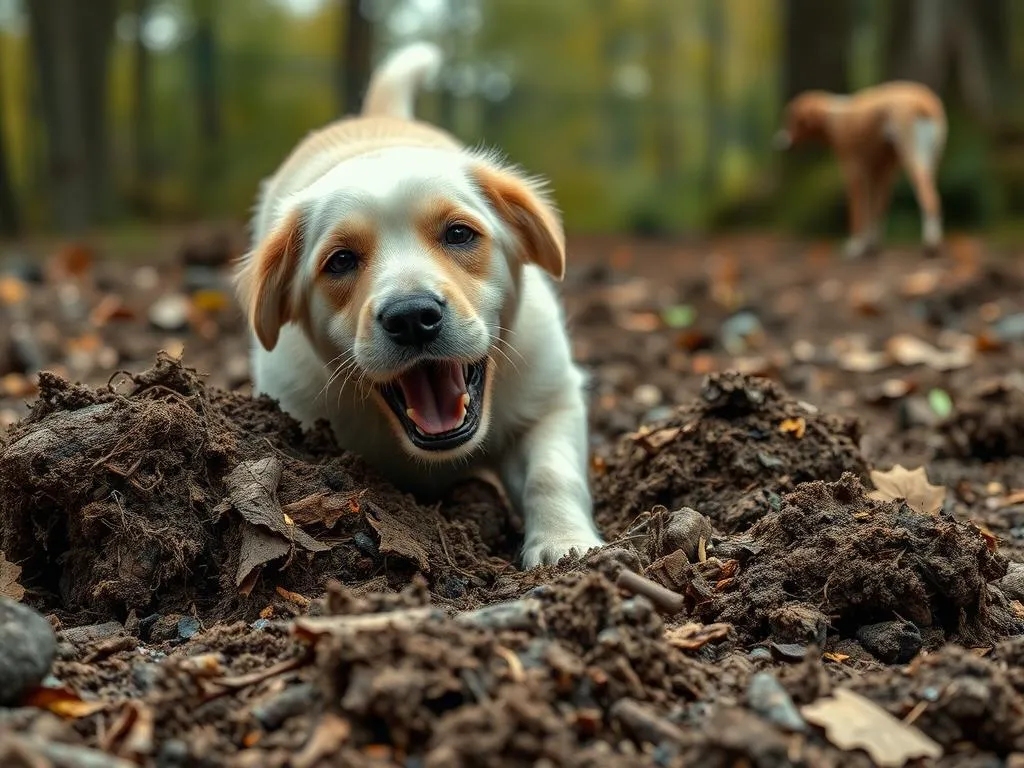
Introduction
As pet ownership continues to rise around the world, the question of environmental responsibility becomes increasingly pertinent. One often-overlooked aspect of pet care is the waste produced by our furry friends. Is dog poop bad for the environment? This query opens the door to a broader discussion about the impact of pet waste on our ecosystems, particularly as more households welcome dogs into their lives.
With over 89 million dogs in the United States alone, the implications of dog waste are significant. This article delves into the environmental consequences of dog poop, exploring its effects on soil, water, and community health. Furthermore, it offers practical solutions for pet owners to mitigate these impacts and engage in more sustainable practices. Understanding the environmental consequences of dog poop and how to mitigate them is crucial for fostering responsible pet ownership.
The Environmental Impact of Dog Poop
Nutrient Pollution
One of the primary ways dog poop affects the environment is through nutrient pollution. When dog waste is left on the ground, rainwater can wash it into storm drains and eventually into local waterways. This leads to nutrient runoff, primarily nitrogen and phosphorus, which are abundant in dog feces. These nutrients can cause rapid growth of algae in water bodies, a phenomenon known as eutrophication.
Eutrophication can severely impact aquatic ecosystems. Algal blooms deprive water of oxygen, leading to the death of fish and other marine life. Additionally, these blooms can produce toxins harmful to both humans and wildlife. The consequences of nutrient pollution from dog waste can be far-reaching, affecting not just the immediate environment but also the health of entire ecosystems.
Pathogen Transmission
Another critical concern related to dog poop is the transmission of harmful pathogens. Dog feces can harbor a variety of bacteria, viruses, and parasites, including E. coli, Salmonella, and Giardia. These pathogens pose health risks not only to other dogs but also to humans and wildlife.
When dog waste contaminates water sources, it can lead to unsafe recreational areas, impacting swimming and fishing activities. Furthermore, the presence of pathogens in soil can affect local flora and fauna, disrupting the balance of the ecosystem. Responsible disposal of dog waste is essential to prevent these health risks and maintain water quality in our communities.
Soil and Plant Health
While dog waste does contain nutrients that can enrich soil, the overaccumulation of dog poop can lead to detrimental effects on soil composition. High concentrations of waste can alter the pH levels of the soil, making it inhospitable for many plants. Additionally, certain pathogens present in dog feces can harm beneficial soil organisms.
The balance between natural waste decomposition and overaccumulation is crucial. In moderation, dog waste may contribute to soil health, but when left unattended, it can lead to negative outcomes for local flora and fauna. Understanding this balance is essential for promoting healthy ecosystems and managing waste responsibly.
Comparing Dog Waste to Other Animal Waste
Dogs vs. Other Pets
When evaluating the environmental impact of dog poop, it is also important to compare it to the waste produced by other pets. Dogs generally produce larger quantities of waste than smaller pets like cats, rabbits, or hamsters. The nutritional composition of dog feces is also different; for instance, dog waste tends to have higher levels of nitrogen and phosphorus, which can exacerbate nutrient pollution.
With the growing scale of dog ownership, the collective impact of dog waste becomes significant. While every pet contributes to waste production, the sheer number of dogs and their waste output can lead to more pronounced environmental effects.
Livestock Waste Comparison
In contrast to dog poop, the waste produced by livestock presents its own set of environmental challenges. While livestock waste is often managed through specific regulations and practices, dog waste typically lacks the same level of oversight. Livestock waste can contribute to significant nutrient runoff and environmental degradation, much like dog waste.
However, the regulations surrounding livestock waste management are generally more stringent, as these animals produce waste on a much larger scale. Understanding the differences between dog waste and livestock waste can help contextualize the challenges posed by pet ownership and highlight the need for improved management practices for all types of animal waste.
Dog Waste Management Practices
Proper Disposal Methods
Responsible dog owners play a crucial role in mitigating the environmental impact of dog poop. Proper disposal methods are fundamental to maintaining a healthy environment. Pet owners should always scoop their dog’s waste immediately and place it in a waste bag. Biodegradable bags are a popular choice, but their effectiveness can vary based on local waste management practices.
In some cases, dog waste can be composted, provided the right systems are in place. Composting dog waste requires specific methods to ensure that pathogens are effectively neutralized. Proper composting practices can convert waste into a nutrient-rich organic material that can be used in non-food gardens, thus closing the loop on waste management.
Community Solutions
Communities can also take proactive measures to manage dog waste effectively. The establishment of dog waste stations in parks and public areas encourages responsible disposal by providing pet owners with easy access to waste bags and disposal bins. These stations can significantly reduce the amount of waste left in public spaces, which in turn helps maintain the health of local ecosystems.
Local regulations and community involvement are essential for the success of dog waste management initiatives. Successful case studies, such as cities implementing fines for dog waste violations, demonstrate that community engagement can lead to a cleaner, healthier environment.
Eco-Friendly Alternatives for Dog Owners
Biodegradable and Compostable Options
As pet owners become more aware of the environmental impact of dog poop, many are seeking eco-friendly alternatives to traditional waste disposal methods. Biodegradable and compostable waste bags are widely available and provide a more sustainable option for cleanup.
In addition to biodegradable bags, dog waste composting systems are gaining popularity. These systems allow pet owners to compost their dog’s waste safely, transforming it into a valuable resource for gardens. By choosing eco-friendly options, pet owners can significantly reduce their environmental footprint.
Sustainable Pet Ownership Practices
Sustainable pet ownership practices extend beyond waste management. Responsible pet ownership includes training dogs to eliminate in designated areas, reducing the likelihood of waste being left on the ground. Additionally, the role of diet in reducing the environmental impact of dog waste cannot be overlooked.
Choosing high-quality, digestible dog food can lead to less waste production, as dogs will absorb more of the nutrients in their food. Moreover, exploring alternative diets that prioritize sustainability can further lessen the environmental impact of dog ownership.
The Role of Pet Owners in Environmental Stewardship
Raising Awareness
Educating pet owners about the environmental consequences of dog poop is essential for fostering responsible behavior. Awareness campaigns can help inform communities about the importance of proper waste disposal and the impact of neglecting this responsibility.
Strategies for spreading awareness can include community events, social media campaigns, and educational materials distributed in local parks and vet clinics. The more informed pet owners are about the environmental implications of their pets’ waste, the more likely they are to take positive action.
Advocacy for Policy Changes
Pet owners can also play a vital role in advocating for better waste management policies at the local level. By engaging with local government and community organizations, pet owners can push for initiatives that promote responsible waste management and environmental protection.
Successful advocacy initiatives have led to improved waste management practices in various communities, highlighting the power of collective action. Pet owners can make a meaningful difference by taking an active role in promoting policy changes that benefit both the environment and the community.
Conclusion
The environmental impacts of dog poop are significant and multifaceted, affecting water quality, soil health, and community well-being. As pet owners, it is our responsibility to understand these consequences and take proactive steps to mitigate them.
By adopting responsible waste management practices, supporting community initiatives, and advocating for policy changes, we can ensure that pet ownership and environmental stewardship go hand in hand. Engaging in eco-friendly practices not only benefits the environment but also fosters a healthier community for all.
Being a responsible pet owner means being an active participant in protecting our planet, and every small action counts toward a larger goal of sustainability.









